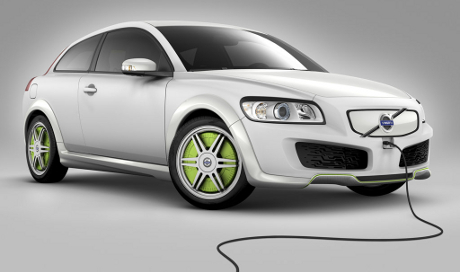
Washington --Federal policies that promote electric vehicles, such as tax credits or incentives for carmakers, will cost US taxpayers about $7.5 billion through 2019, and may not result in lower gasoline consumption or greenhouse gas emissions, the Congressional Budget Office said in a new report.
The policies could reduce gasoline use and GHG emissions over a longer period of time if federal fuel efficiency standards are influenced by sales of EVs, CBO said.
The report, issued Thursday, was done at the request of Senator Lisa Murkowski, a Republican from Alaska and ranking minority member on the Senate Energy and Natural Resources Committee.
The Electric Drive Transportation Association, which is made up of utilities, carmakers, battery manufacturers and others, is taking issue with some of the analysis in the report, pointing out that the report lists limitations because of the infancy of the EV sector.
The federal incentives examined in the report include direct loans to carmakers or companies that manufacture parts for high-fuel-efficiency vehicles, at a budget cost of $3.1 billion; tax credits of up to $7,500 each for buyers of EVs, at a budget costs of $2 billion; grants to companies that make batteries or other components of EVs, $2 billion; and grants to accelerate the introduction and use of EVs, $400 million.
In evaluating the effectiveness of the tax credits, "the report provides the caveat that 'as yet, no reliable estimates exist of the share of electric vehicle sales that can be attributed to the tax credits,'" said Brian Wynne, president of EDTA.
"While we do not agree with all of the assumptions made and relied on in the report, CBO's illustrations do show that tax incentives can help move electric drive into the mainstream and reduce gasoline use and emissions, while growing the industry," Wynne said in a statement.
The CBO report said the direct effect of tax credits can be reduced gasoline consumption and fewer GHG emissions, but indirect effects associated with corporate average fuel economy standards will limit their impact over the next several years. The tax credits will increase sales of EVs, hybrid vehicles and traditional vehicles with higher fuel efficiency, boosting the average fuel economy of carmakers' fleets, CBO said.
However, those sales will give carmakers to opportunity to boost sales of low-fuel-efficiency vehicles and prompt car dealers to lower prices of low-fuel-economy vehicles to compete with higher efficiency models.
"Consequently, given corporate average fuel economy standards that are high enough to constrain automakers' production decisions, the tax credits cannot significantly affect total gasoline use or greenhouse gas emissions," when the standards are in effect, the report said. Those standards extend through 2021 for fuel economy standards and 2025 for emission standards, the CBO said.